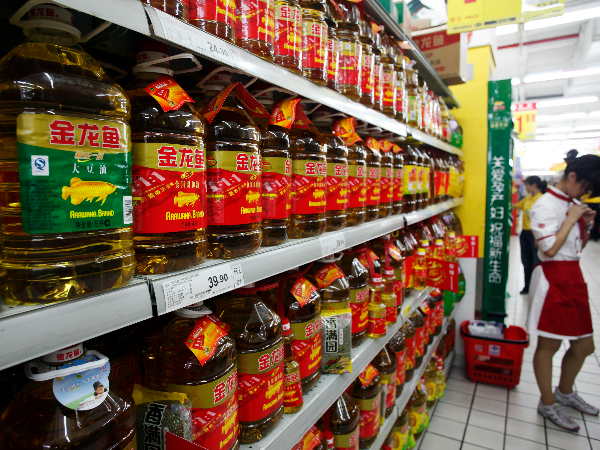The Minister of Finance and Economic Planning, Uzziel Ndagijimana, has announced that import duty on cooking oil has been reduced from 35 per cent to 25 per cent.
He was speaking while presenting the proposed national budget for the fiscal year 2023/2024 before parliament on Thursday Afternoon June 15, 2023.
He said that in order to make it easier for Rwandans to afford some important and most needed goods including edible oil, Rwanda has been allowed to charge customs duties that are lower than those charged in the East African Community (EAC).
“The import duties charged in the East African community look at all goods. The goods include both those imported through Mombasa port and Dar es Salaam port.
However, a country can request a special customs duty depending on its particular needs,” he said explaining why tax on imported cooking oil to Rwanda was reduced by 10 per cent from 35 per cent to 25 per cent as local production is still low.
Rwanda produces at least 80,000 metric tonnes every year and imports an average of 125,000 metric tonnes, making it a net importer of cooking oil according to the ministry of trade and industry.
In 2020, Rwanda spent a staggering Rwf106billion on the importation of cooking oil, which is among the top 10 products that are shipped into the country.
In 2019, Rwanda only exported 37,399 kilogrammes of cooking oil, which generated Rwf257.8 million while re-exports were equivalent to 42,664,161 kilogrammes worth Rwf33,.7 billion.
In 2020, Rwanda exported 20,697 kilogrammes worth Rwf418 million while re-exports were 37,652,496 kilogrammes worth Rwf35 billion.
The country was expecting a plant expected to produce 100 tonnes of cooking oil every day.
The waste from the cooking oil production have to be used in soap production.
With these new investments, Rwanda hopes to gradually reduce cooking oil imports, which peaked at 126,002 metric tonnes in 2020, up from 121,981 metric tonnes in 2019.
Import duties on rice, sugar, fish reduced
Rice, sugar and fish will also pay less import taxes compared to those charged at EAC level.
According to Ndagijimana, import duty on rice has been reduced to 45 per cent or $345 per tonne from 75 per cent charged at EAC level.
The tax on sugar will be reduced to 25 per cent from 100 per cent charged at EAC level.
Rwanda Imports of Sugars and sugar confectionery was $194.82 Million during 2022, according to the United Nations COMTRADE database on international trade.
The local market demand go to a maximum of 80,000 metric tonnes of sugar per year.
Imported fish will be charged 25 per cent from 35 per cent, he added.
Fish production in Rwanda slightly increased from 41,664 tonnes in 2021 to 43,560 tonnes in 2022, according to a report by the Ministry of Agriculture and Animal Resources.
According to the report by the Ministry of Trade and Industry, fish imports increased from 22,473 tonnes worth Rwf22 billion in 2017 to 35,772 tonnes worth Rwf32.5 billion in 2020.










